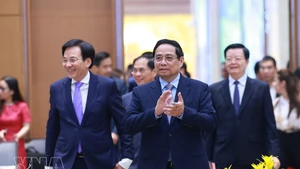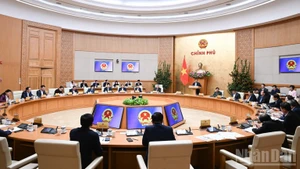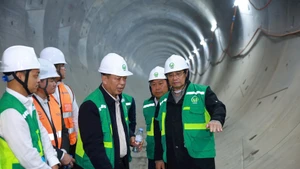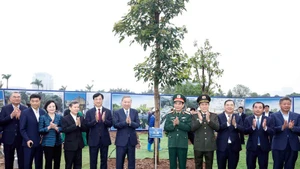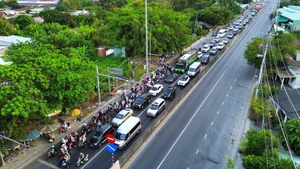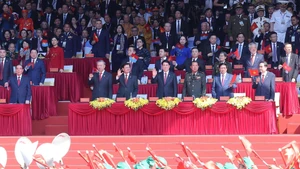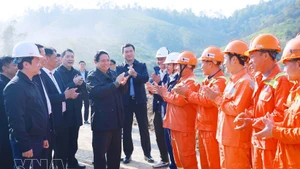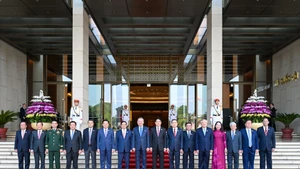Addressing the Vietnam Logistics Forum 2024, which was held in southern Ba Ria-Vung Tau province on December 2, PM Chinh pointed to the need to increase the sector's contribution to the country's GDP from 10% to 15% and even 20%, while raising Vietnam’s share of global logistics from 0.4% to 0.6%, and lifting the sector's growth rate from 14-15% to 20%.
Along with raising public awareness of the position, role, and importance of logistics in the country’s development process, it is necessary to create a breakthrough in institutional development, with efforts to refine frameworks to ensure that the logistics sector develops in line with the three key objectives, contributing to achieving double-digit growth and ushering the country into a new era — the era of nation’s rise, where the country becomes prosperous and strong.
The Government leader called for the development of modern, seamless logistics infrastructure that reduces input costs and enhances the competitiveness of products. This includes promoting the growth of air, maritime, and high-speed rail transport. Additionally, a focus must be placed on smart governance, high-quality human resources, and strengthening logistics diplomacy, while modernising domestic logistics operations, building and developing a free trade nation with close connections among various transport methods - air, sea, rail, inland waterway, and highways, linking the world’s free trade zones and the international transport network.
The PM requested relevant ministries, sectors, and localities to urgently focus on building a free trade nation, finalising Vietnam’s logistics development strategy and establishing international free trade zones.
PM Chinh highlighted the Government's role in building institutions, strategies, and plans to create a conducive environment for the development of logistics. He stressed the need for localities to increase activeness and self-reliance in boosting logistics development, and urged businesses to become more self-reliant and make more contributions to the development of policies that balance the interests of the State, the people, and enterprises, emphasising the motto of harmonising benefits and sharing risks.
The leader also called on foreign organisations and businesses to collaborate and invest in Vietnam, following the principles of mutual understanding, shared vision, and joint actions, mutual benefits and common development.
Vietnam is seen by experts as having significant opportunities to promote the growth of the logistics sector thanks to expanding infrastructure, including road systems, airports, seaports, warehouses, and logistics centres. The development is rapidly meeting the market's diverse demands.
In recent years, Vietnam’s logistics sector has grown at about 14-16% per year, with a scale of around 40-42 billion USD a year. According to the World Bank's rankings, Vietnam currently ranks 43rd out of 155 countries in logistics efficiency and is among the top five in the Association of Southeast Asian Nations (ASEAN).
In the first nine months of 2024, nearly 6,500 logistics companies were established with total registered capital of 36.55 trillion VND (1.43 billion USD) and nearly 28,900 employees. This marked a 13.5% increase in the number of companies and an 18.3% rise in the number of employees, despite a decrease of 11.3% in capital compared to the same period in 2023.
The Vietnam Logistics Forum, organised annually by the Ministry of Industry and Trade since 2013, aims to promote the application of advanced technologies in supply chain operations, enhance competitiveness in Ba Ria – Vung Tau and the Southeastern region, and foster cooperation among businesses, investors, and management agencies to develop the logistics sector in Vietnam.
This year, the forum sends out a message of Vietnam’s interest in developing free trade zones as a breakthrough solution for logistics growth, helping position Vietnam as a logistics powerhouse, and contributing to the nation's industrialisation and modernisation.
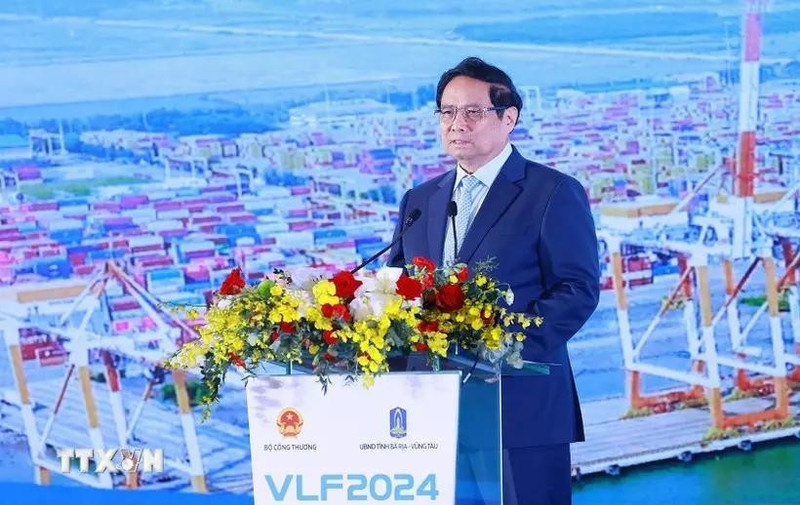

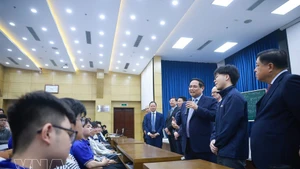
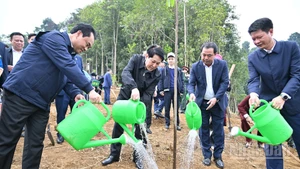
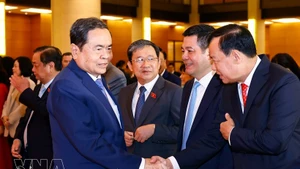
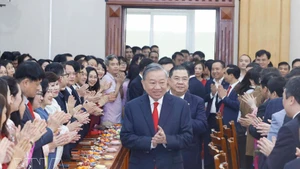
![[In Photos] State President attends launch ceremony of tree planting festival in Lao Cai Province](https://en-cdn.nhandan.vn/images/5992a12dd6e78b9bfb434962ff1830731c3ef6c1538d722fbb2593b0fa31ecfef49228c53032d69e7064fd34994bdd2c/1.jpg.webp)

